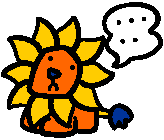
-------------------------------------------
#75 ペットを飼うことはどうなんでしょうか?
-------------------------------------------
完璧な世界があるとしたら、そこでは人間はこの地球上の他の種の生
物の生息地を守るためだけに努力していることでしょう。そうした世界
では、他の種の動物を、私たちの家庭に連れ込むことなどせず、それぞ
れの動物が本来の野生の中で生きていける状態を続けさせていくはずで
す。
でも、現状はそうしたユートピアからはほど遠いものです。私たちは、
動物を飼い慣らしてしまったことに責任のある人間として、その結果に
対処しなくてはならないのです。ペットとして飼い慣らされてきた動物
には、もはや帰るべき野生はないので、動物の権利を支持する人の大半
は、そうした動物とコンパニオン・アニマル(訳注:ペットという言葉
の、動物が人間の所有物であるかの様な語感を嫌う人たちがこうした表
現をする)として一緒に暮らすことに問題があるとは思っていません。
実際、もらい手のないコンパニオン・アニマルについては、動物の権利
を支持している人達の方が一般の人達より多く、引き取っていると言え
るでしょう! 同じ理由から、農業のために家畜化された動物たちにつ
いても人間が面倒を見るべきです。
しかし、野生の動物はそのままにしておくべきです。コンパニオンと
して人間の家に連れてきてはいけません。家の中の檻はエキゾティック
な鳥や魚やほ乳類にとって、不自然な環境です。もの珍しさがなくなっ
てしまうと、ペットにされた野生動物は、たいてい、収容施設や動物園
や実験室へ送られることになります。野生動物は尊重して扱われるべき
権利を持っています。そうした権利には、本来の自然環境の中で生きる
ということも含まれています。
LK
コンパニオン・アニマルとして適切な動物との間に、愛情にもとづき、
かつ、動物たちの身体的、心理的欲求に十分、配慮した関係を結ぶこと
と、動物の権利の原則や主張とは、決して矛盾するものではありません。
動物の権利の擁護者たちは率先して「かわいがられている」はずのペ
ットたちが虐待されていたり、ちゃんと世話をされていないという実体
を訴えてきました。ペットを飼う上で当たり前と思われていることの多
くは見直され、改善されるべきものです。動物の権利運動がコンパニオ
ン・アニマルに関して投げかける疑問は、重要なものです:
*動物とコンパニオン・アニマルとして共に暮らして、なおかつ彼ら
の欲求に適切に応えることができるでしょうか? これが全ての動
物に対して可能だと言えないことは明らかです。たとえば、鳥をか
ごの中で飼うことは、鳥の飛ぶ能力や飛びたいという生来の欲求を
否定する行為です。
*人間の都合に合わせて動物に手を加えることが、動物の利益にもな
っているなどと言えるでしょうか? この意味で、尾を短く切るこ
となどは非難されるべき行為だと言えます。
*当たり前の様に思われている動物の扱いの中にも不当な搾取に当た
るものがあるのではないでしょうか? サーカスに動物を使うこと
や、動物で同情を誘って通行人から金をめぐんでもらおうとする物
乞いなどは、まず間違いなくこれに該当するでしょう。
*本当に動物を尊重し、愛する姿勢とそうでない姿勢とはどの様に違
うのでしょうか? 珍種の動物の交配はそうした意味での動物虐待
の一例です。特に、交配によって生まれた動物に、なんらかの病気
や生物的欠陥などのリスクが大きい場合は、なおさらです。
現在、行われている行為について、より深く真剣に考えること。そし
て、現状が人間と動物の双方を満足させるという基準を本当に満たして
いるのかを見直すこと:それこそが動物の権利運動が訴えていることな
のです。
TA
コンパニオン・アニマルを選ぶときは、次のようなことを考慮すべき
です。
自分の現状にふさわしいコンパニオン・アニマルを選ぶこと -- アパ
ートや小さな庭で大きな犬を飼ってはいけません。鳥や魚など閉じこめ
て飼うことになってしまうような動物は避けること。ただし、猫につい
ては、猫自身とその地域の野生動物を保護するために、できるだけ(特
に夜は)家の中で飼うようにするのは良いことです。
犬や猫は地元の動物収容所や動物保護団体から引き取りましょう;
英国動物愛護協会などの団体は、毎年、無数の動物を処分しています。
そうした動物たちのほとんどは迷子になったり捨てられたりしたもので
す。たちの悪いのを引き取らされることはありません。このような組織
から動物を引き取ることで、動物たちの命を救えるだけではなくブリー
ダー(繁殖業者)への依存も減らすこともできるのです。
最後に、コンパニオン・アニマルに避妊手術をすることもお忘れなく。
避妊をしない方が、あるいは子供を産む方が動物にとって行動面や生物
学的な面でメリットがあるなどということはありません。生まれてしま
った子犬や子猫の一匹一匹には新たな引き取り手が必要になるのです。
JK
参照:
#76

...............



-----------------------
#75 What about keeping pets?
-----------------------
In a perfect world, all of our efforts would go toward protecting the
habitats of other species on the planet and we would be able to maintain a
"hands off" approach in which we did not take other species into our
family units, but allowed them to develop on their own in the wild. However,
we are far from such a Utopia and as responsible humans must deal with the
results of the domestication of animals. Since many animals domesticated
to be pets have been bred but have no homes, most AR supporters see
nothing wrong with having them as companion animals. As a matter of fact,
the AR supporter may well provide homes for more unwanted companion
animals than does the average person! Similarly, animals domesticated for
agricultural purposes should be cared for.
However, animals in the wild should be left there and not brought into
homes as companions. A cage in someone's house is an unnatural
environment for an exotic bird, fish, or mammal. When the novelty wears
off, wild pets usually end up at shelters, zoos, or research labs. Wild
animals have the right to be treated with respect, and that includes
leaving them in their natural surroundings.
LK
A loving relationship with a proper companion animal, a relationship
that adequately provides for the animal's physical and psychological needs,
is not at all inconsistent with the principles and advocacy of animal rights.
Indeed, animal rights advocates have been leaders in drawing attention to
some of the abuses and neglects of our "beloved" pets. Many of the taken for
granted practices do need to be reexamined and changed. The questions that
animal rights raises about companion animals are important questions:
* Can we maintain animals as companions and still properly address their
needs? Obviously, we can't do this for all animals. For example,
keeping birds in cages denies those creatures their capacity and
inherent need to fly.
* Is manipulating companion animals for our needs in the the best
interests of the nonhuman animal as well? Tail docking would thus be
a practice to condemn in this regard.
* Might some of our taken-for-granted practices of pet keeping be really
a form of exploitation? Animals in circuses or panhandlers using
animals on the street to get money from passersby would arguably be
cases of exploitation.
* Which attitudes of human caretakers are truly expressions of our
respect and love towards these animals, and which might not be?
Exotic breeding is one example of this kind of abuse, especially when
the breeding results in animals that are at a greater risk for
certain diseases or biological defects.
All that animal rights is really asking is that we consider more deeply
and authentically the practice at hand and whether or not it truly meets
the benchmark that BOTH the needs of human AND nonhuman animals be
considered.
TA
The following points should be considered when selecting a companion
animal.
Get a companion animal appropriate to your situation--don't keep a big dog
in a flat or small garden. Don't get an animal that will be kept
unnecessarily confined--birds, fish, etc. However, it is a good policy to
try to keep cats inside as much as possible, especially at night, to protect
both the cat and local wildlife. Get your dog or cat from a local pound or
animal group; thousands of animals are destroyed each year by groups such as
the RSPCA. The majority are animals who are lost or dumped. Vicious animals
are not adopted out. By getting an animal from such a source you will be
saving its life and reducing the reliance on breeders.
Finally, get your companion neutered. There is no behavioral or biological
benefit from being fertile or from having a litter. And every pup or kitten
that is produced will need to find a home.
JK
SEE ALSO: #76




